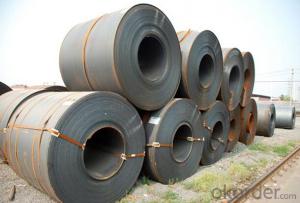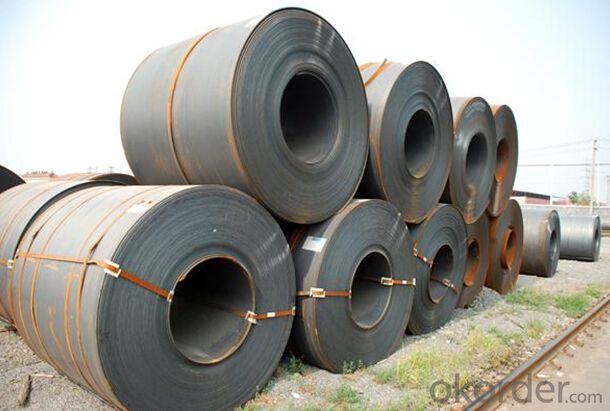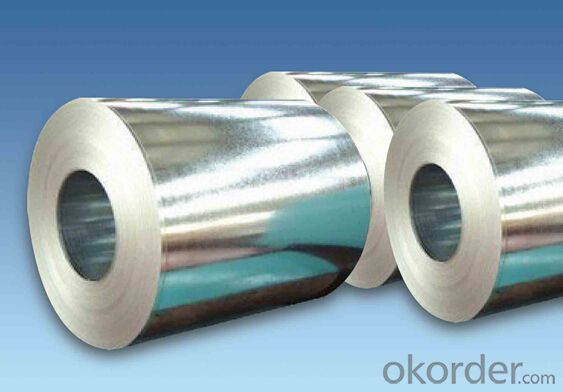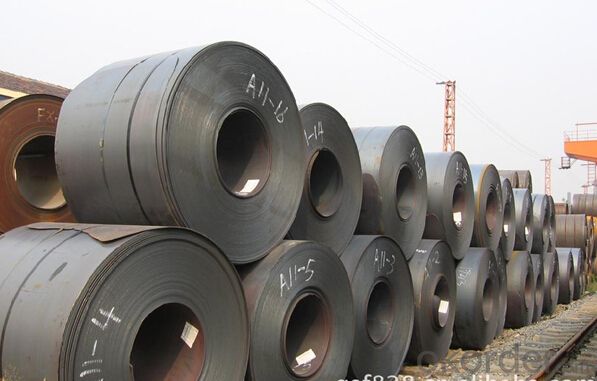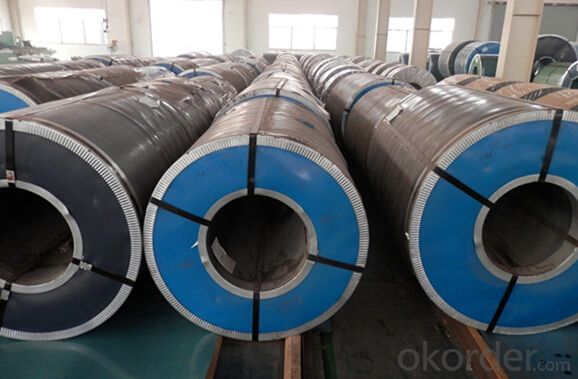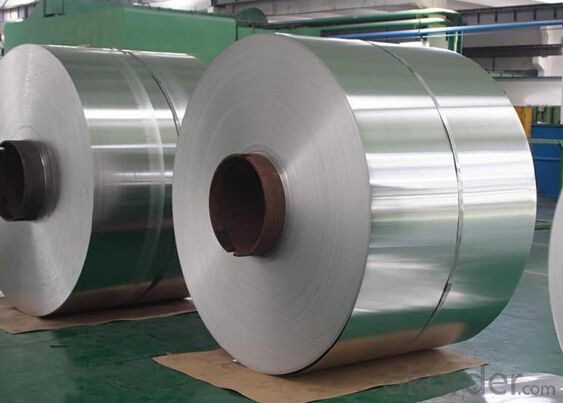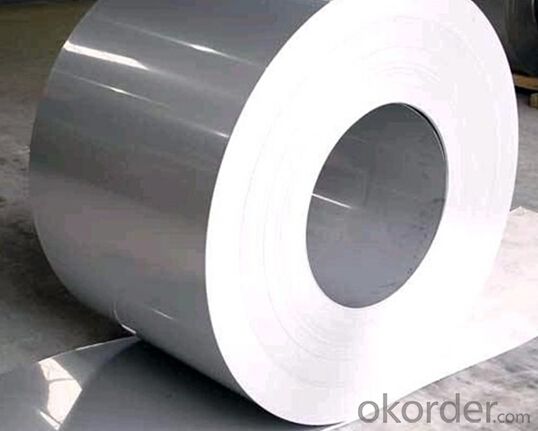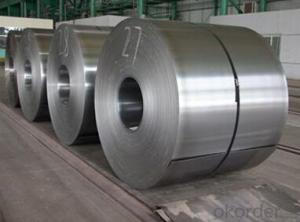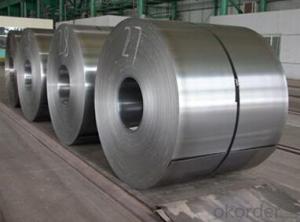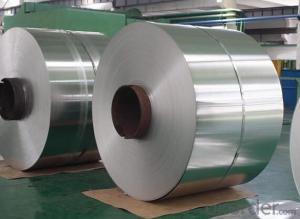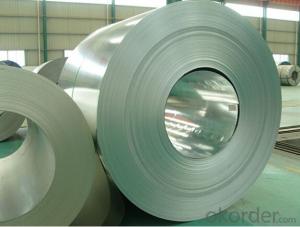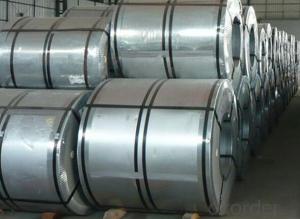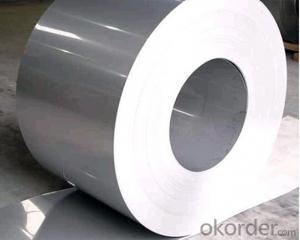Grade JIS SGHC-SGH540 Galvanized Steel Coil
- Loading Port:
- Tianjin
- Payment Terms:
- TT OR LC
- Min Order Qty:
- 3 m.t.
- Supply Capability:
- 10000 m.t./month
OKorder Service Pledge
OKorder Financial Service
You Might Also Like
Specification
Grade JIS SGHC-SGH540 Galvanized Steel Coil
Specification of Grade JIS SGHC-SGH540Galvanized Steel Coil
1. Galvanized Steel Coil
(1) Width: 600-1570mm
(2) Thickness: 0.13-5.0mm
(3) Grade: JIS G3302-SGCC-SGC570, SGCH (full hard-G550), SGHC-SGH540
EN10346-DX51D+Z, DX53D+Z, S250GD-S550GD
STM A653-CS-B, SS255-SS550
(4) Zinc Coating: Z40g/m2~Z500g/m2 (both side total coating thickness)
2. Galvalume Steel Coil
(1) Width: 600~1500mm
(2) Thickness: 0.15~2.30mm
(3) Grade: JIS G3321-SGLCC, SGLC400-570, (G550)
EN10346-DX51D+AZ, DX53D+AZ, S250-S550
ASTM A792M CS-B, SS255-SS550
(4) AZ Coating: AZ50~AZ185g/m2
3. Prepainted Galvanized Steel Coil (PPGI)
(1) Width: 600~1250mm
(2) Thickness: 0.19~1.50mm
(3) Grade: JIS G3312-CGCC, CGC340-570, (G550)
ASTM A755M CS-B, SS255-SS550
(4) Zinc Coating: Z40g/m2~Z500g/m2 (both side total coating thickness)
4. Prepainted Galvanized Steel Coil (PPGL)
(1) Width: 600~1250mm
(2) Thickness: 0.20~1.50mm
(3) Grade: JIS G3322-CGLCC, CGLC340-570, (G550)
ASTM A755M CS-B, SS255-SS550
(4) AZ Coating: AZ50~AZ185g/m2 (both side total coating thickness)
5. Cold Rolled Steel Coil (Soft) (for further information, pls click the product name)
(1) Width: 600~1570mm
(2) Thickness: 0.13~2.50mm
(3) Grade: JIS G3141-SPCC-SD, SPCD-SD, SPEC-SD
JIS G3135-SPFC 340/390/440
EN10130-DC01, DC03, DC04
SAE1006, SAE1008
ASTM A424-TypeⅡ
6. Cold Rolled Steel Coil (Full Hard) (for further information, pls click the product name)
(1) Width: 600~1570mm
(2) Thickness: 0.13~2.50mm
(3) Grade: JIS G3141-SPCC-1B, SPCC-1D
7. Hot Rolled Steel Coil
(1) Width: 1000~1524mm
(2) Thickness: 1.20~16.5mm, other thickness can be negotiation
(3) Grade: JIS G3101-SS400, JIS G3132-SPHT1/2/3, ASTM A36, Q195, Q235 etc.
Company Introduction of the Grade JIS SGHC-SGH540 Galvanized Steel Coil
CNBM International Corporation is the most import and export platform of CNBM group(China National Building Material Group Corporation) ,which is a state-owned enterprise, ranked in 270th of Fortune Global 500 in 2015.
With its advantages, CNBM International are mainly concentrate on Cement, Glass, Iron and Steel, Ceramics industries and devotes herself for supplying high quality series of refractories as well as technical consultancies and logistics solution.
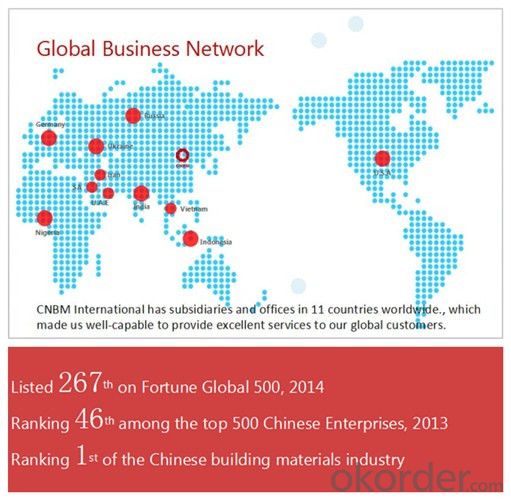
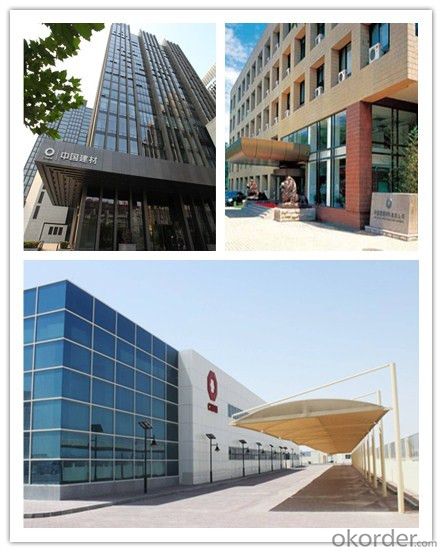
Packaging & Delivery Grade JIS SGHC-SGH540 Galvanized Steel Coil
Packaging Detail | Sea worthy packing /as per customer's packing instruction |
Delivery Detail | 15 ~ 40 days after receiving the deposit |
Products Show:
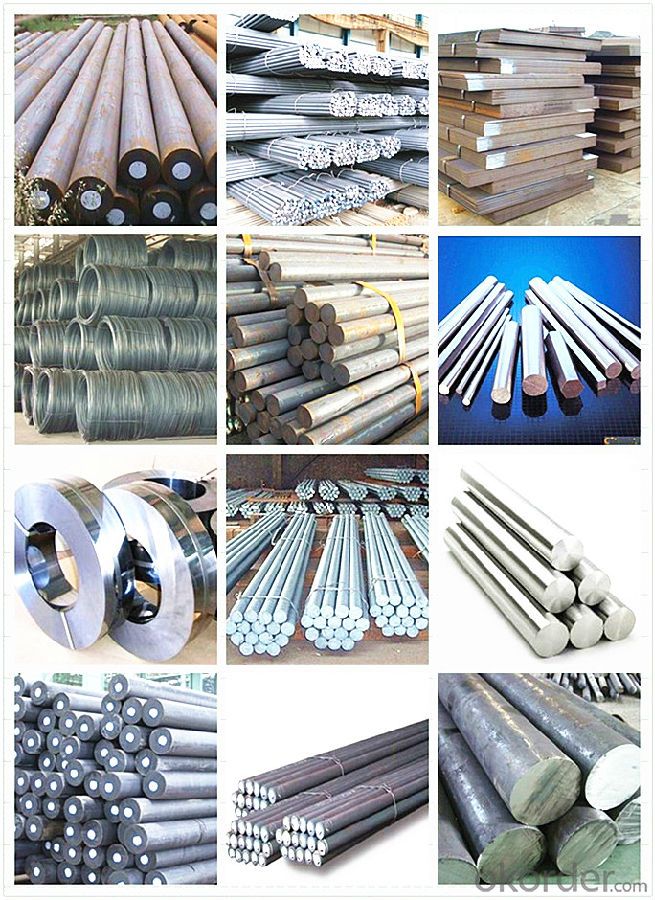
FAQ:
Are you a trading company or manufacturer? | Manufacturer |
What’s the MOQ? | 3 metric ton |
What’s your delivery time? | 15-35 days after downpayment received |
Do you Accept OEM service? | Yes |
what’s your delivery terms? | FOB/CFR/CIF |
What's the Payment Terms? | 30% as deposit,70% before shipment by T/T |
Western Union acceptable for small amount. | |
L/C acceptable for large amount. | |
Scrow ,Paybal,Alipay are also ok | |
Why choose us? | Chose happens because of quality, then price, We can give you both. Additionally, we can also offer professional products inquiry, products knowledge train (for agents), smooth goods delivery, excellent customer solution proposals. |
What's your available port of Shipment? | Main Port, China |
What’s your featured services? | Our service formula: good quality+ good price+ good service=customer's trust
|
Where are your Market? | Covering more than 160 countries in the world |
- Q: What are the most common alloys used in special steel?
- The most common alloys used in special steel are chromium, nickel, molybdenum, and vanadium.
- Q: What are the common challenges in machining titanium alloys?
- Successful and efficient results in machining titanium alloys require addressing several common challenges. One primary challenge is the inherent strength and hardness of the material. Titanium alloys are renowned for their excellent strength-to-weight ratio, making them ideal for various applications. However, this same strength makes them difficult to machine. The high strength of titanium alloys increases the cutting forces needed during machining, resulting in faster tool wear and reduced tool life. This necessitates the use of robust cutting tools made from carbide or ceramic, capable of withstanding demanding conditions and maintaining cutting performance. Another challenge in machining titanium alloys is their poor thermal conductivity. This characteristic leads to rapid heat buildup during cutting, causing localized high temperatures. These high temperatures can cause thermal damage to both the cutting tool and the workpiece, reducing dimensional accuracy and surface finish. To overcome this challenge, implementing effective cooling and lubrication techniques, such as using coolant or high-pressure air, is crucial to dissipate heat and prevent overheating. Furthermore, machining titanium alloys often results in the generation of built-up edge (BUE). BUE refers to the accumulation of workpiece material on the cutting tool, leading to poor chip evacuation, increased cutting forces, and surface finish issues. To mitigate BUE formation, it is recommended to use appropriate cutting speeds and feed rates, as well as cutting fluids that aid in chip evacuation and prevent material adhesion on the tool. Additionally, titanium alloys react strongly with oxygen, causing the formation of a stubborn oxide layer on the surface during machining. This oxide layer can cause tool chipping and premature wear. To combat this, it is necessary to employ suitable cutting speeds and feeds that efficiently remove material while minimizing prolonged exposure to the reactive nature of titanium alloys. Lastly, the low thermal expansion coefficient of titanium alloys can result in workpiece distortion and dimensional inaccuracies. To address this challenge, it is important to ensure proper fixturing and clamping techniques that minimize workpiece movement during machining. In conclusion, machining titanium alloys presents challenges such as high cutting forces, poor thermal conductivity, built-up edge formation, reactive oxide layer, and workpiece distortion. These challenges can be overcome by using appropriate cutting tools, effective cooling and lubrication techniques, proper cutting parameters, and careful workpiece handling.
- Q: What is the impact of grain size on the mechanical properties of special steel?
- The impact of grain size on the mechanical properties of special steel is significant. Grain size refers to the size and distribution of individual crystals within the steel structure. It is determined by factors such as the cooling rate during solidification and subsequent heat treatments. In general, a smaller grain size in special steel leads to improved mechanical properties. This is because smaller grains offer a greater number of grain boundaries, which act as barriers to dislocation movement and improve the strength of the steel. Smaller grains also provide a more uniform microstructure, enhancing the overall toughness and resistance to fracture. Additionally, a smaller grain size promotes higher hardness and increased wear resistance in special steel. This is due to the increased number of grain boundaries that hinder the movement of dislocations, preventing plastic deformation and leading to higher hardness values. On the other hand, larger grain sizes can negatively impact the mechanical properties of special steel. Larger grains have fewer grain boundaries, allowing dislocations to move more freely. This results in reduced strength, toughness, and hardness of the steel. Furthermore, larger grains can also lead to anisotropic behavior, where the mechanical properties differ in different crystallographic directions, making the steel more susceptible to failure under certain loading conditions. Therefore, controlling and optimizing the grain size in special steel is crucial to achieve desired mechanical properties. This can be achieved through precise heat treatments, such as annealing or quenching, which control the cooling rate and subsequent recrystallization processes. By controlling the grain size, special steel can be tailored to meet specific application requirements, ensuring optimal mechanical performance and reliability.
- Q: What are the properties of maraging steel?
- Maraging steel is a type of high-strength steel known for its exceptional toughness, strength, and resistance to wear and fatigue. It possesses unique properties such as high yield strength, excellent impact resistance, and good corrosion resistance. Additionally, maraging steel exhibits good machinability, allowing it to be easily shaped and formed. This steel also has the ability to be heat treated to achieve even higher levels of strength, making it highly desirable for applications in aerospace, defense, and tooling industries.
- Q: How does special steel contribute to the aerospace racing industry?
- Special steel contributes to the aerospace racing industry by providing high strength, durability, and resistance to extreme temperatures, which are crucial for the development of advanced aircraft and spacecraft components. It is used in critical parts like turbine blades, landing gear, and engine components, enhancing performance, efficiency, and safety. Additionally, special steel's lightweight properties enable the production of lighter aircraft, resulting in improved fuel efficiency and increased speed.
- Q: How does special steel withstand extreme temperatures?
- Due to its unique composition and production process, special steel possesses the ability to endure extreme temperatures. An essential factor in achieving this is the incorporation of alloying elements such as chromium, molybdenum, and nickel, which enhance the steel's resistance to heat. These elements react to form stable oxides on the steel's surface, forming a protective shield against oxidation and corrosion at high temperatures. Furthermore, special steel undergoes specific heat treatment methods like quenching and tempering, which refine its microstructure and enhance its mechanical properties. This process strengthens the steel, enabling it to maintain its strength and hardness even under harsh temperature conditions. In addition, the manufacturing process of special steel requires precision and control over the cooling rate. This controlled cooling prevents the formation of brittle phases, ensuring that the steel maintains its toughness and ductility at both high and low temperatures. Moreover, the grain size of special steel is meticulously regulated through techniques like grain refinement, resulting in a more uniform and fine-grained microstructure. This fine-grained structure enhances the steel's ability to resist thermal fatigue and creep, enabling it to endure prolonged exposure to extreme temperatures without significant degradation. Overall, the combination of alloying elements, specialized heat treatment processes, controlled cooling, and refined microstructure renders special steel highly capable of withstanding extreme temperatures while preserving its structural integrity and mechanical properties.
- Q: Can special steel be used in the production of kitchen utensils?
- Kitchen utensils can benefit from the use of special steel. This term refers to steel alloys with specific properties, including resistance to corrosion, high strength, and durability. These qualities make special steel suitable for various applications, including the production of kitchen utensils. To meet the demands of regular use, exposure to water, and high temperatures, kitchen utensils require a robust material. Special steel, such as stainless steel, is commonly used for this purpose due to its resistance to corrosion and ability to withstand heat. Stainless steel utensils are widely recognized for their durability, rust resistance, and ease of cleaning. Apart from stainless steel, there are other types of special steel suitable for kitchen utensils. For instance, high carbon steel is often employed in the production of chef knives due to its sharpness and strength retention. Additionally, titanium-coated steel utensils are available, offering benefits like non-stick properties and enhanced durability. In conclusion, special steel provides versatility in the production of various kitchen utensils. Its outstanding properties make it an ideal choice for manufacturers aiming to deliver durable and high-quality products capable of enduring the demands of everyday kitchen use.
- Q: What are the different methods of surface powder coating for special steel?
- There are several methods of surface powder coating that are commonly used for special steel. These methods include: 1. Electrostatic powder coating: This method involves applying an electric charge to the powder particles and then spraying them onto the steel surface. The charged particles are attracted to the grounded steel, resulting in a uniform and durable coating. 2. Fluidized bed powder coating: In this method, the steel is preheated and then dipped into a fluidized bed of powder particles. The heat causes the powder to melt and form a smooth coating on the steel surface. Excess powder is then removed by shaking or blowing air. 3. Flame spray powder coating: This method involves heating the powder particles using a flame and then spraying them onto the steel surface. The heat melts the powder, which then solidifies to form a coating. Flame spray powder coating is often used for larger steel structures or for repairing damaged coatings. 4. Thermal spray powder coating: This method uses a thermal spray gun to heat and propel the powder particles onto the steel surface. The high velocity of the particles ensures good adhesion and a dense coating. Thermal spray powder coating is often used for high-wear applications or in corrosive environments. 5. UV-cured powder coating: This method involves applying a UV-sensitive powder onto the steel surface and then exposing it to UV light. The UV light initiates a chemical reaction that causes the powder to cure and form a hard coating. UV-cured powder coating is known for its fast curing time and excellent resistance to chemicals and UV radiation. Each of these methods has its own advantages and considerations, and the choice of method will depend on factors such as the specific requirements of the steel surface, the desired coating thickness, and the production volume.
- Q: Can special steel be used for making chemical processing equipment?
- Indeed, chemical processing equipment can indeed be manufactured using special steel. It is common practice to opt for special steels, such as stainless steel, for such purposes due to their remarkable ability to resist corrosion, endure high temperatures, and exhibit durability. Given that chemical processing equipment frequently encounters corrosive substances, operates under extreme temperatures and pressures, it becomes imperative to employ materials that can withstand these demanding conditions. Special steel alloys are specifically engineered to possess exceptional resistance to corrosion, including resistance to acids, alkalis, and other aggressive chemicals. Furthermore, these steels are able to maintain their mechanical properties even when subjected to elevated temperatures, thereby ensuring the equipment's integrity and safety. Consequently, special steel emerges as an appropriate choice for the production of chemical processing equipment.
- Q: What are the requirements for special steel used in wind turbines?
- The requirements for special steel used in wind turbines are crucial for ensuring the reliability, efficiency, and durability of these large-scale renewable energy systems. Here are some of the key requirements: 1. Strength and Durability: Special steel for wind turbines must possess high strength and durability to withstand the harsh operating conditions, including strong winds, vibrations, and extreme temperature variations. It should have a high fatigue resistance to endure cyclic loading over the turbine's operational life, which can be up to 20-25 years. 2. Corrosion Resistance: Wind turbines are often installed in coastal or offshore environments, where they are exposed to corrosive saltwater and salt-laden air. Therefore, the special steel used in wind turbines must have excellent corrosion resistance to prevent degradation and ensure long-term performance. 3. Weldability: The steel used in wind turbines should be suitable for welding processes to facilitate the fabrication and assembly of the turbine components. Good weldability allows for efficient construction and maintenance, reducing downtime and associated costs. 4. Low Temperature Toughness: Wind turbines are often located in regions with low temperatures, such as arctic or mountainous areas. Special steel used in these turbines should possess good low-temperature toughness, ensuring its mechanical properties remain intact even in cold climates. 5. Magnetic Properties: Wind turbines employ various electrical components, such as generators and transformers, where electromagnetic fields are present. Special steel used in these components should have specific magnetic properties to minimize energy losses and maximize the efficiency of the electrical system. 6. Cost-effectiveness: While meeting all the above requirements, the special steel used in wind turbines should also be cost-effective. It should offer a good balance between performance and cost to ensure the economic viability of wind energy projects. Meeting these requirements is essential to ensure the long-term operation and sustainability of wind turbines, enabling them to generate clean and renewable energy efficiently.
Send your message to us
Grade JIS SGHC-SGH540 Galvanized Steel Coil
- Loading Port:
- Tianjin
- Payment Terms:
- TT OR LC
- Min Order Qty:
- 3 m.t.
- Supply Capability:
- 10000 m.t./month
OKorder Service Pledge
OKorder Financial Service
Similar products
Hot products
Hot Searches
Related keywords
